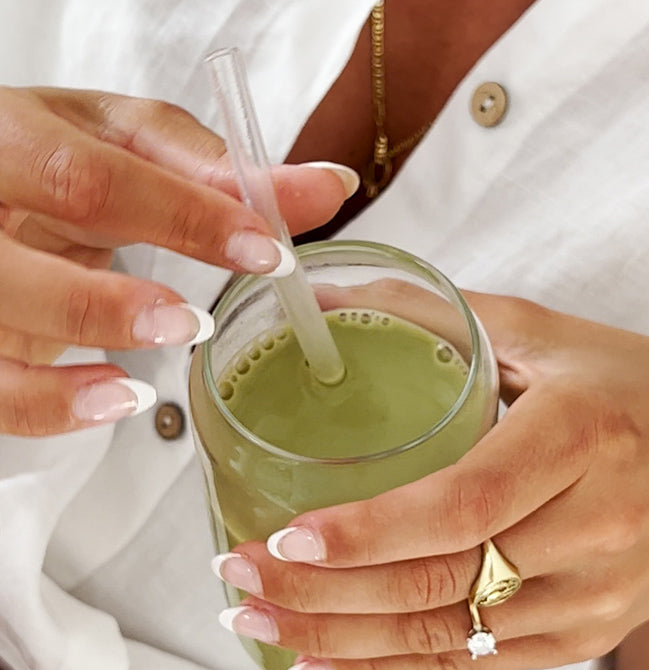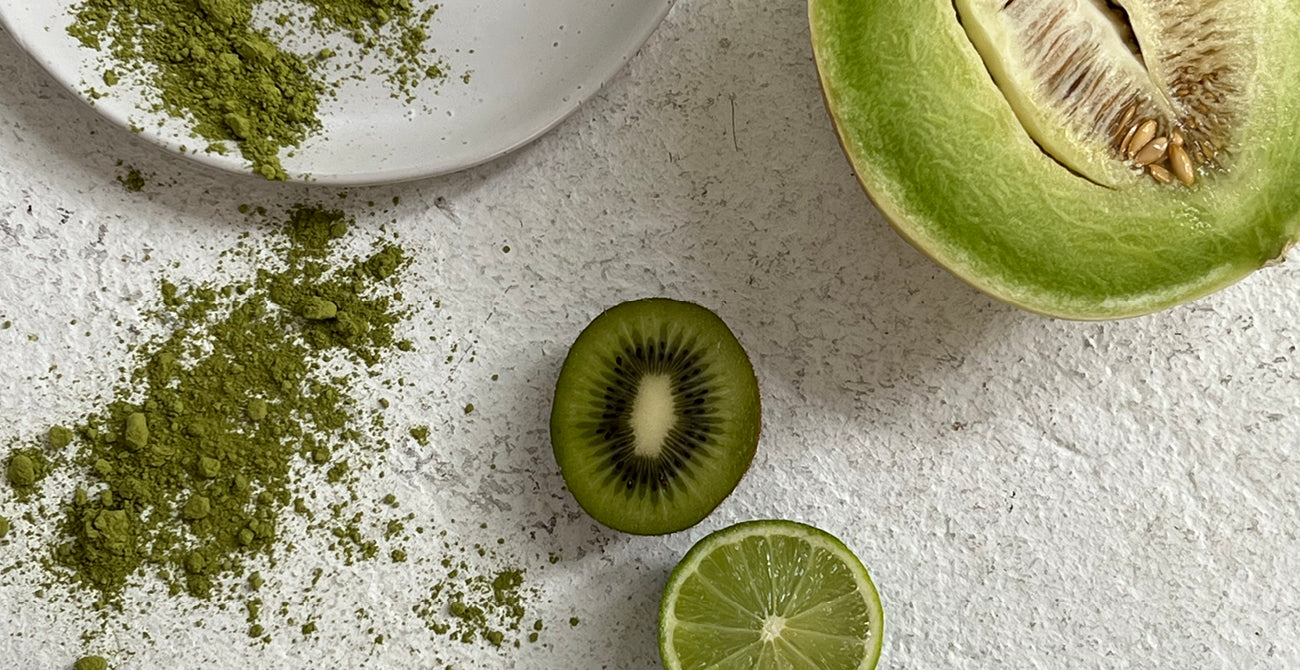
But First, Matcha
Posted: 20 October 2022
Matcha is a powdered form of green tea, traditionally sipped in East Asia and recognised for its beautifully rich green colour.
More than a pretty cup of tea
Matcha is a powdered form of green tea, traditionally sipped in East Asia and recognised for its beautifully rich green colour. We can thank Gwenyth Paltrow, who pretty much kicked-started the matcha trend in 2015 after sharing a matcha latte on her Instagram – what a debut for our green goddess!
Now, Green tea has definitely had its time in the limelight since then, but in my opinion, often for the wrong reasons. The fad-diet industry gripped green tea by the horns and advertised it on literally EVERYTHING. From supplements to pre-workouts, they added a sprinkle of green tea and claimed it would ‘speed-up metabolism’ and ‘burn fat fast’.
Friends, Green tea, particularly matcha, is so much more than this. It should be known for its other, more evidence-based health benefits. So let’s take a look.


Mood, Memory and Attention
I’m sure that caught your attention - Who doesn’t want more of these three things! Studies have shown that green tea influences psychopathological symptoms such as reduced anxiety and benefits in memory and attention. This is likely due to the L-theanine (an amino acid) and caffeine content found in green tea. Of course, those who are sensitive to caffeine will likely not experience the calming benefits of L-theanine. Next time you reach for a coffee, consider choosing a matcha instead to power you (rather than jitter you) through the day.
Reduced Risks of Some Cancers
Oxidative damage can lead to chronic inflammation, which often results in disease such as cancer. Antioxidants can help protect against oxidative damage, and thus be protective against developing some cancers.
Green tea is a ridiculously excellent source of antioxidants. Observational studies have shown that women who drank green tea had a 20-30% lower risk of developing breast cancer (however other research did not find this correlation); An analysis found green tea drinkers were 42% less likely to develop colorectal cancer; Numerous studies verify a moderate association between green tea consumption and gastric cancer risk. The exact mechanism requires further research, but it is a promising start!

Heart Health
Green tea has shown to reduce the risk of a range of cardiovascular diseases and protect our precious heart. Research believes this is due to the high catechin content and its ability to enhance vascular integrity and protect vascular cells – fancy words for keeping vessels strong and healthy!
Like anything, there is always too much of a good thing. As a naturopath, I recommend up to 2 cups of green tea or matcha per day, prepared from 100% organic sources (unfortunately highly commercialised products are often sourced from poor quality crops, then spiked with sugar, flavours and colouring agents). Always be mindful that matcha contains only slightly less caffeine than coffee, so the jitters can still occur if you’re sensitive.


About the Author
Laura Ballin is a Clinical Naturopath (BHSc) passionate about empowering individuals to reconnect with their body and return home to their true-self. After battling with an eating disorder and various digestive concerns, Laura has a special interest in the gut, mental health, women’s hormonal health and skin conditions. Laura is available for consultations in South-East Queensland and online.


